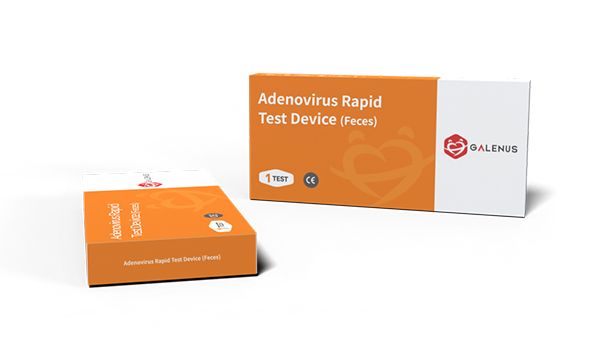Follow our latest developments
Adenovirus is an important pathogen that causes respiratory, digestive, and eye infections worldwide, and its prevalence has significant regional characteristics:
Southeast Asia/Sub Saharan Africa: Adenoviral enteritis is highly prevalent in children, with a detection rate of 20% -35% in fecal samples; Water pollution has led to an outbreak of conjunctivitis, with over 500 cases of single infection.
North America/Europe: Imported cases account for 22% (carried by international travelers), and the mortality rate of severe pneumonia is 16.6% -33.3% (for immunocompromised patients).

Vulnerable populations and health hazards
High risk population: Children under 5 years old (accounting for 60% of diarrhea cases); Immunodeficiency patients (mortality rate of 10% -20% after infection in transplant patients);
Children in daycare institutions (with a group outbreak infection rate exceeding 40%).
Health hazards: Adenoviral enteritis poses a 25% risk of dehydration in children, and severe cases require hospitalization; Respiratory infections account for 10% of community-acquired pneumonia, and 30% of hospitalized patients progress to severe cases.

Route of transmission
Fecal-oral transmission: accounting for 35% of intestinal adenovirus infections (in areas with poor hygiene conditions)
Water source transmission: contamination of swimming pools/drinking water can cause outbreaks of conjunctivitis or diarrhea;
Contact/droplet transmission: Respiratory adenovirus spreads through droplets or pollutants (R0=3.5).
Comparison of detection techniques and advantages of colloidal gold method
Testing method |
Sensitivity |
Specificity |
Testing time |
Applicable scenarios |
Colloidal gold method |
85%-90% |
95% |
10-15minutes |
On site screening, rapid response to epidemic outbreaks |
PCR |
90% |
99% |
4-6hours |
Laboratory classification and precise diagnosis |
Virus cultivation |
50%-60% |
100% |
7-14days |
Research/Special Typing Needs |
Core advantages of colloidal gold method:
Quick screening: results will be available within 15 minutes, suitable for group infection scenarios such as childcare institutions and refugee camps;
Easy to operate: No professional equipment required, primary medical institutions can independently complete it;
Low cost: The cost of a single test is only 1/15 of PCR;
Multi scenario applicability: Can detect samples such as feces, serum, and conjunctival swabs.

Galenus Medical's Adenovirus Rapid Test Device (Feces) is based on colloidal gold immunochromatography technology, which captures adenovirus antigens by labeling antibodies and forms a visible colorimetric reaction. It can detect intestinal adenovirus (40/41 type) in fecal samples; Supports use in conjunction with rotavirus and norovirus detection kits; Can be used to quickly identify the source of adenovirus infection in outbreaks of diarrhea in children; Simultaneous detection of intestinal infection cases in water source pollution incidents.